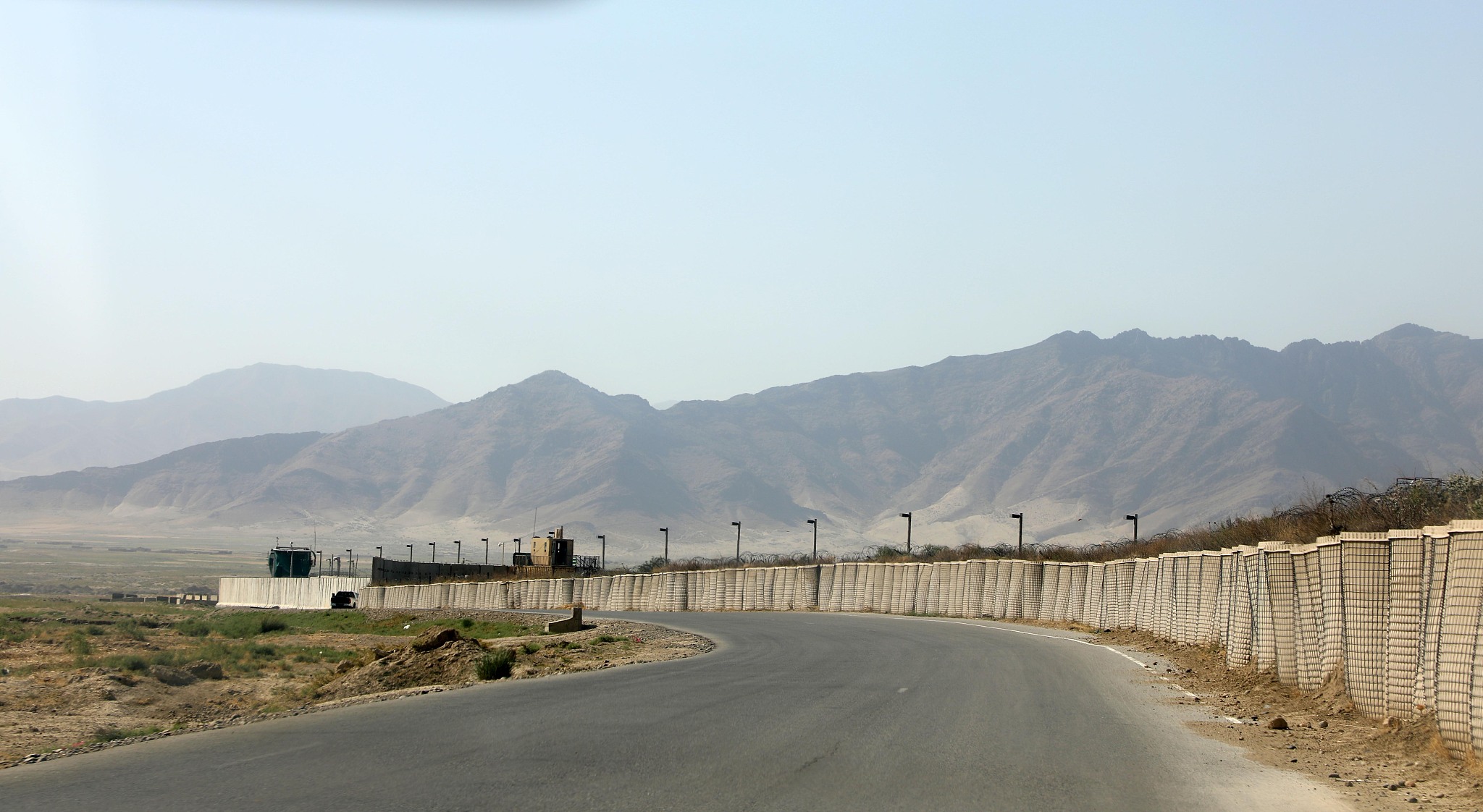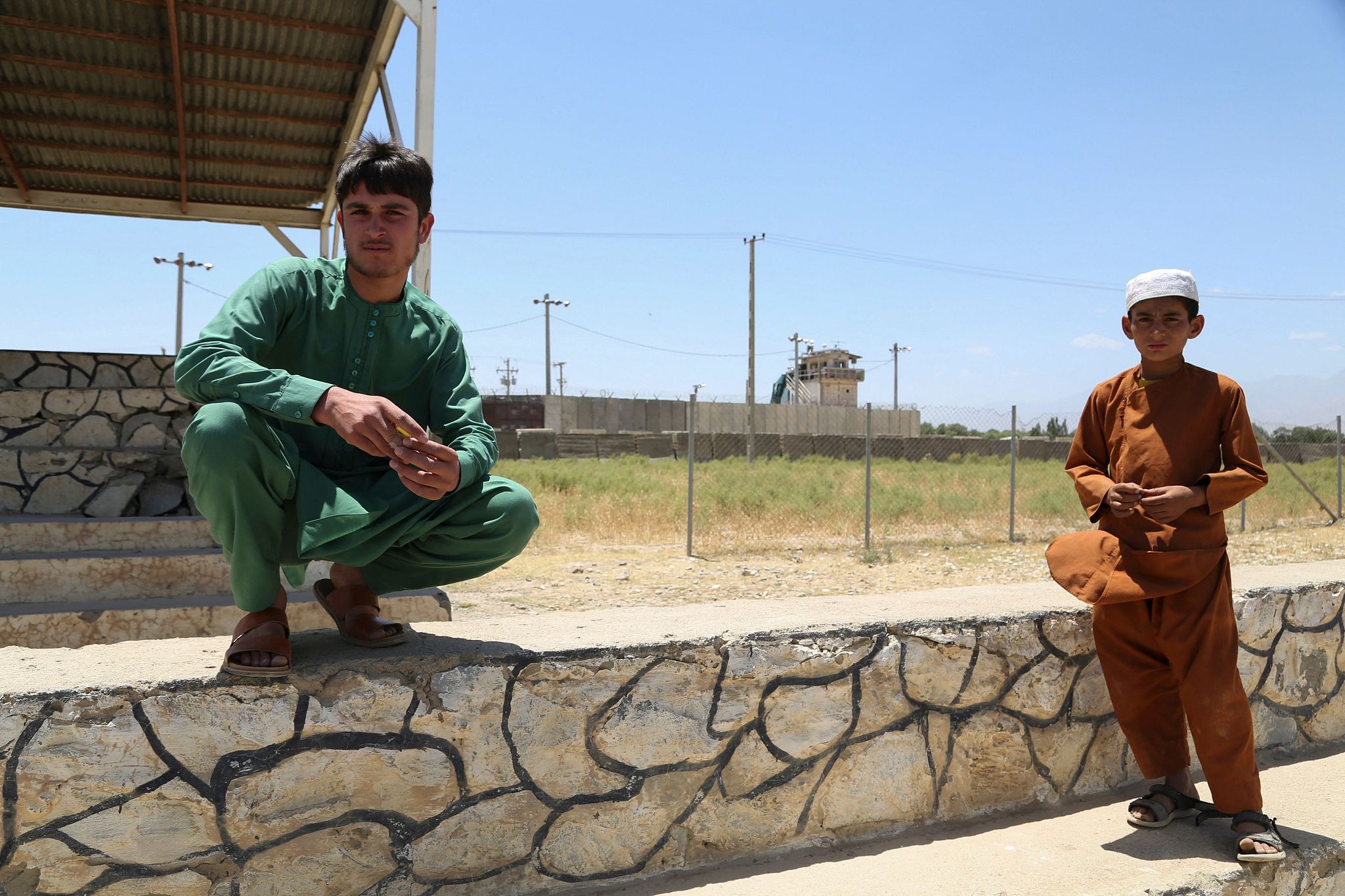
A general view of Bagram Airfield, the biggest U.S. military station in Afghanistan, has been handed over to the Afghan forces as the U.S. troops are withdrawing from the country ahead of schedule, in Afghanistan, July 2, 2021. /VCG
A general view of Bagram Airfield, the biggest U.S. military station in Afghanistan, has been handed over to the Afghan forces as the U.S. troops are withdrawing from the country ahead of schedule, in Afghanistan, July 2, 2021. /VCG
Editor's note: Thomas O. Falk is a London-based political analyst and commentator. He holds a Master of Arts in international relations from the University of Birmingham and specializes in U.S. affairs. The article reflects the author's opinions and not necessarily the views of CGTN.
With the withdrawal of foreign troops from Afghanistan, the West has admitted its defeat but also undeniably confirmed that Western values cannot be exported and installed through military means.
After the attack on New York's World Trade Center in 2001, one aspect of the mission in Afghanistan, besides fighting terrorism, was the idea of "nation-building" and democratization. Children should go to school, and women should be able to live independently. The enthusiasm was considerable at that time.
However, almost 20 years later, one has to realize that the West's approach of liberal internationalism and the idea of exporting democracy has failed, not just in Afghanistan but as a whole.
Large parts of Afghanistan are once already under the influence of the Taliban. They are currently leveraging their position in talks with the Kabul government - delay, make new demands, and show no willingness to compromise, while more and more parts of the country fall back into their hands. The inevitable results will be that the Taliban will soon return to power, at the very least as part of a future government, but more likely as sole ruler.
With the help of neighboring countries, the Taliban wrested a military stalemate from an alliance that was significantly better equipped in terms of technology and outnumbered them greatly. After almost two decades of arduous nation-building by some of the most powerful countries in the world in vain, the concept of nation-building has proven to be a mirage.

Youths pose for a picture outside Bagram Air Base, after all U.S. and NATO troops leave, some 70 Km north of Kabul, Afghanistan, July 2, 2021. /VCG
Youths pose for a picture outside Bagram Air Base, after all U.S. and NATO troops leave, some 70 Km north of Kabul, Afghanistan, July 2, 2021. /VCG
Afghanistan is not the only example. It is apparent that Western military operations have not improved the individual situation recently but rather aggravated them. The former U.S. President George W. Bush not only wanted to free Iraq from Saddam Hussein with a military intervention in 2003 but also wanted to bring Western values to the country.
Nobody can reasonably claim that this was even remotely successful. Something similar can be said about Libya, where after the fall of Ghaddafi, chaos and a division in the country transpired that continues to this day.
Having developed into a quagmire, ultimately, the question arose in Afghanistan whether NATO should ensure that the goals had been achieved for an indefinite period of time. The Americans finally answered no, forcing all other allies to withdraw.
How detrimental the situation surrounding Afghanistan was can be seen by the fact that not only the former President Donald Trump sought to cease this "endless war" – albeit primarily for political reasons, but, his successor Joe Biden, who otherwise increased the troops under Obama, also recently said that the mission was never intended to become one that spans over generations.
Pragmatically, two different U.S. presidents have made it clear: the military goal of combating terrorism has been achieved; everything else that concerns Afghanistan is irrelevant.
The question now is whether the West is willing and able to find alternatives to its failed strategy. Germany's Foreign Minister Heiko Maas, for example, is increasingly relying on financial incentives in order to continue to achieve the desired good behavior in Afghanistan in the future, regardless of who will govern the country in the future: development aid only to the extent that progress is made in peace efforts, in maintaining democracy and the rule of law, in the fight against corruption and respect for human rights.
Linking aid to good governance is a method that Germany is now using in development cooperation around the world. It is quite possible that this approach will find more and more advocates.
However, here, too, the following applies: The demand can be made, but one should not be under any illusions. Even the relatively modern-minded government under President Ashraf Ghani had a hard time with Western values. And once back in power, the Taliban will not suddenly be persuaded into becoming "westernized" by financial advantages.
Nonetheless, the legacy of Afghanistan for the West is apparent, and the naïve idea of nation-building, which, quite frankly, is nothing but a euphemism for exporting one's own system and forcing it upon other peoples, has failed once and for all.
(If you want to contribute and have specific expertise, please contact us at opinions@cgtn.com.)

